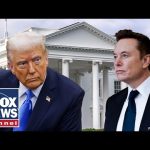President Donald Trump has once again shaken up the global trade landscape with his announcement of “reciprocal tariffs,” a bold move aimed at addressing what he describes as longstanding inequities in international trade. The concept is straightforward: if a country imposes high tariffs on American goods, the United States will respond with equivalent tariffs on their imports. This marks a significant escalation in Trump’s “America First” economic policy, as he seeks to level the playing field for U.S. businesses and reduce the nation’s trade deficit.
For decades, American exporters have faced disproportionately high tariffs compared to those levied on foreign goods entering the U.S. For example, India imposes tariffs up to 20% higher on U.S. goods, while the European Union charges a 10% tariff on American cars compared to the 2.5% rate applied to European vehicles in the U.S. Trump’s plan aims to end these imbalances by matching foreign tariffs dollar-for-dollar, signaling a firm stance against what he views as unfair trade practices. The president has made it clear that this policy will apply universally, with no exemptions or waivers for allies or adversaries alike.
The announcement has already prompted reactions from key trading partners, with the European Union hinting at potential negotiations to lower their tariffs on American products. This development underscores the effectiveness of Trump’s strategy in fostering dialogue and pressuring nations to reconsider their trade policies. By giving countries until April 1st to adjust or face reciprocal measures, Trump has created both a timeline for action and an opportunity for diplomacy.
Domestically, the business community has responded with cautious optimism. While some economists warn that reciprocal tariffs could raise consumer prices and stoke inflation, many industry leaders see this as a long-overdue correction that will benefit American manufacturers and workers. The stock market initially rallied on news of the plan, reflecting investor confidence in Trump’s ability to negotiate better trade terms. However, concerns remain about potential retaliation from other nations and the broader implications for global economic stability.
This initiative represents a triumph of common sense and fairness in trade policy. It aligns with Trump’s broader vision of restoring American economic strength by prioritizing domestic industries and holding foreign competitors accountable. While critics decry the move as protectionist, supporters argue that it is simply enforcing reciprocity—a principle that ensures mutual respect and benefits in international commerce. As negotiations unfold in the coming months, Trump’s reciprocal tariffs could mark a turning point in global trade relations, reaffirming America’s commitment to fairness and sovereignty in its economic dealings.




